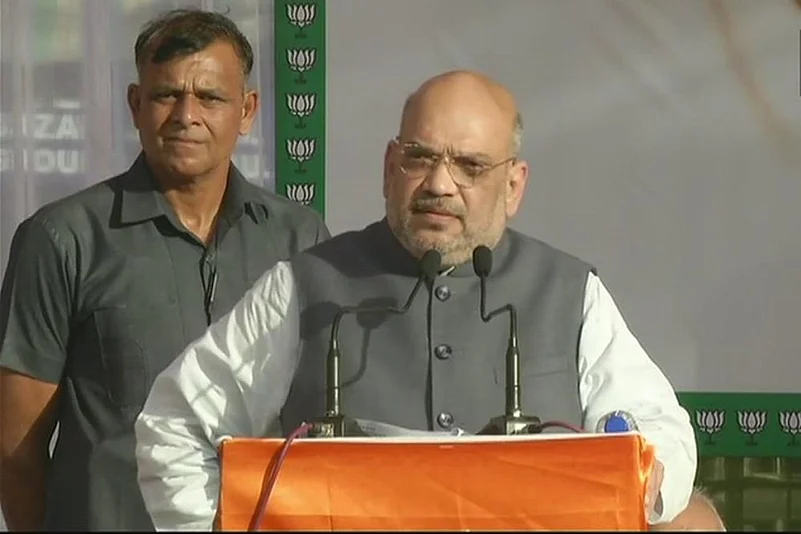On the anniversary of Syama Prasad Mookerjee, Bharatiya Janta Party president Amit Shah justified breaking up an alliance with the Peoples Democratic Party saying that the BJP would sacrifice any government for the peace and security of the region. “We don’t regret fall of our government. Last year when I came to Jammu and Kashmir, we were in the coalition government. Now we have taken support back. Political parties regret when their govt falls but BJP is the only party that says bharat mata ki jai,” he said.
Shah went to say that the foundation of alliance between the BJP and the PDP were the three points: ensuring equal development of all three regions, making certain peace and security in the region and also Jammu and Kashmir would remain part of India. He described the three points as the Agenda of Alliance between the two parties.
Advertisement
The BJP leader said that Prime Minister Narendra Modi government gave Rs 80,000 crores economic package for the development of the State and in past three years the party persisted with the coalition partner to carry forward equal development in the state and ensure peace and security. But he said the development projects were not carried evenly in all three regions and the peace was shattered due to abduction and killing of an Army person Aurungzeb and the assassination of an Editor, Shujaat Bukhari.
He said the Army continued to be under attack and the stone throwing increased making it necessary to break away from the coalition. “We thought it is better to be in the opposition…Many people were telling me why we broke up an alliance. I told them I will narrate it to Jammu people as they have given us the vote,” Shah said. However, the PDP says a look at the actual Agenda of Alliance (AoA) which came up after two months negotiation between the BJP General Secretary Ram Madhav and the PDP leader Dr. Haseeb Drabu tells a different story.
Advertisement
Incidentally, in the AoA, both the parties had agreed that “the present position will be maintained on all the constitutional provisions pertaining to J&K, including the special status in the Constitution of India.” In the AoA or the CMP, both the parties agreed to follow former Prime Minister Atal Bihari Vajapyee’s “Insaaniyat, Kashmiriyat aur Jamhooriyat” approach toward Kashmir saying coalition government would facilitate and help initiate a sustained and meaningful dialogue with all internal stakeholders, which would include all political groups irrespective of their ideological views and predilections.
The CMP also talks about confidence building measures, such as, enhancing people to people contact on both sides of the LoC; encouraging civil society exchanges, taking travel, commerce, trade and business across the LoC to the next level and opening new routes across all three regions to enhancing connectivity.
Though CMP has conceded that both parties have historically held a different view on the Armed Forces Special Powers Act (AFSPA) and the need for it in the State at present, as part of the agenda for governance of the PDP-BJP alliance, the CMP says, the coalition government will examine the need for de-notifying ‘disturbed areas’. “This, as a consequence, would enable the Union Government to take a final view on the continuation of AFSPA in these areas,” the CMP reads.




















